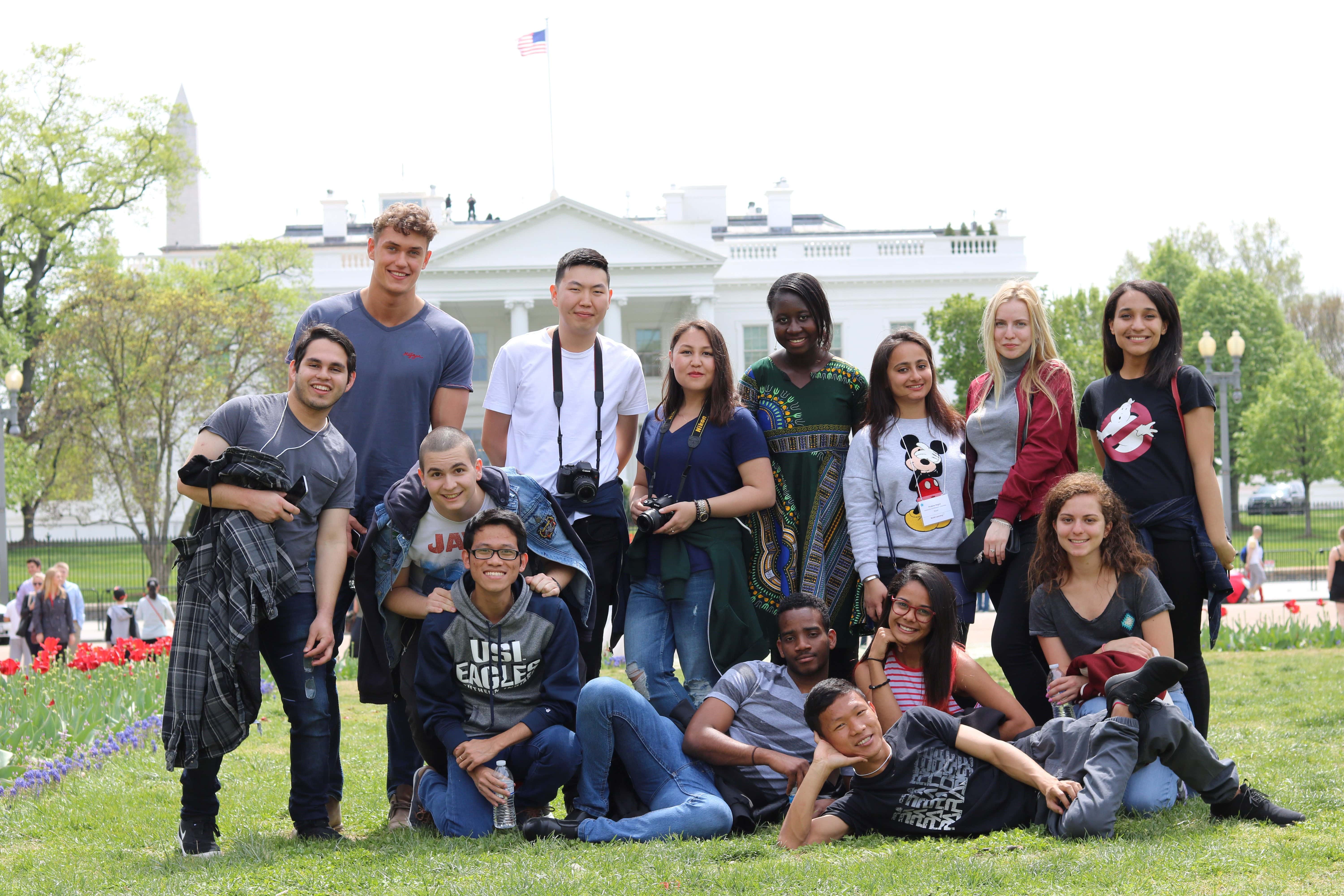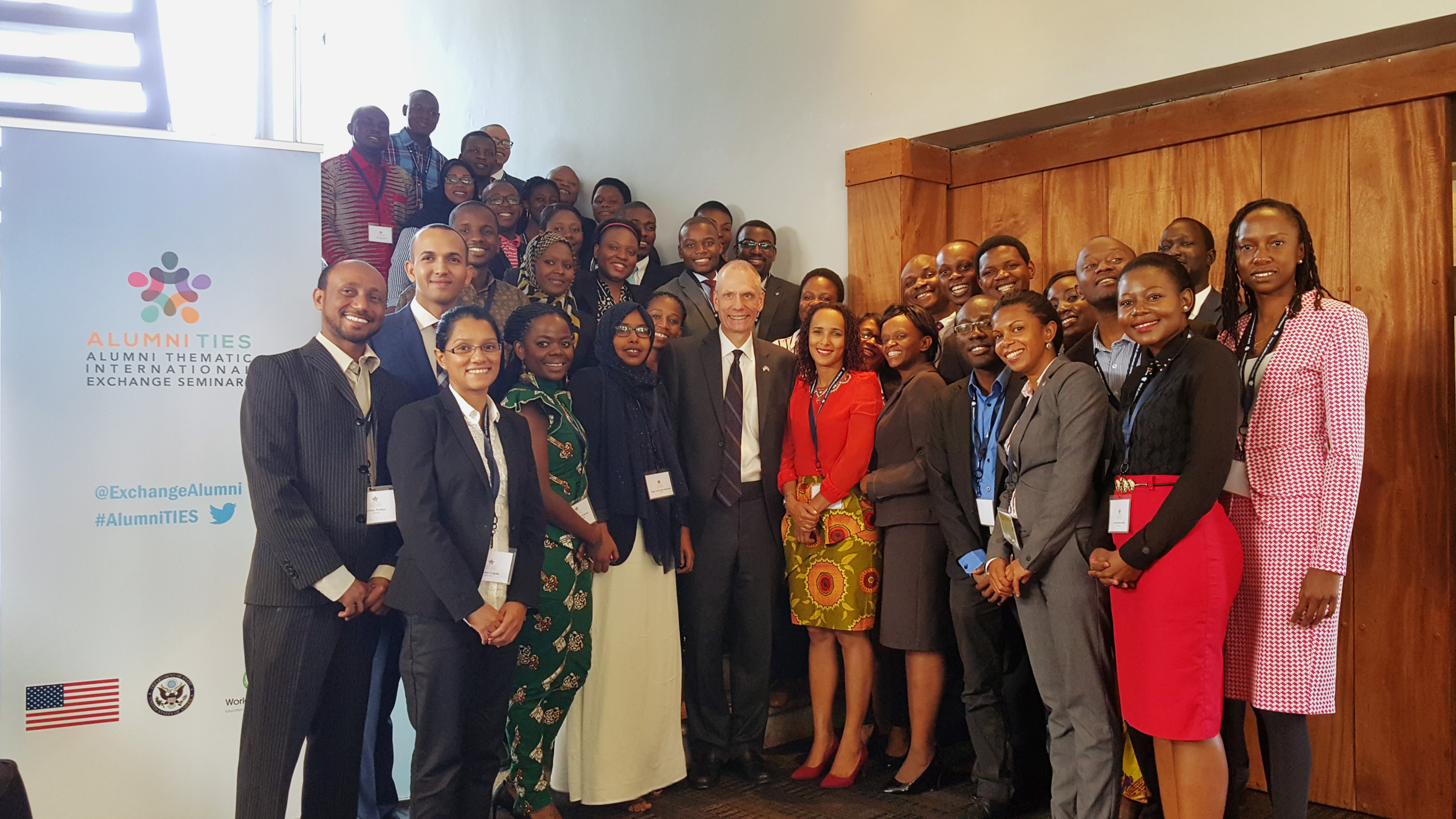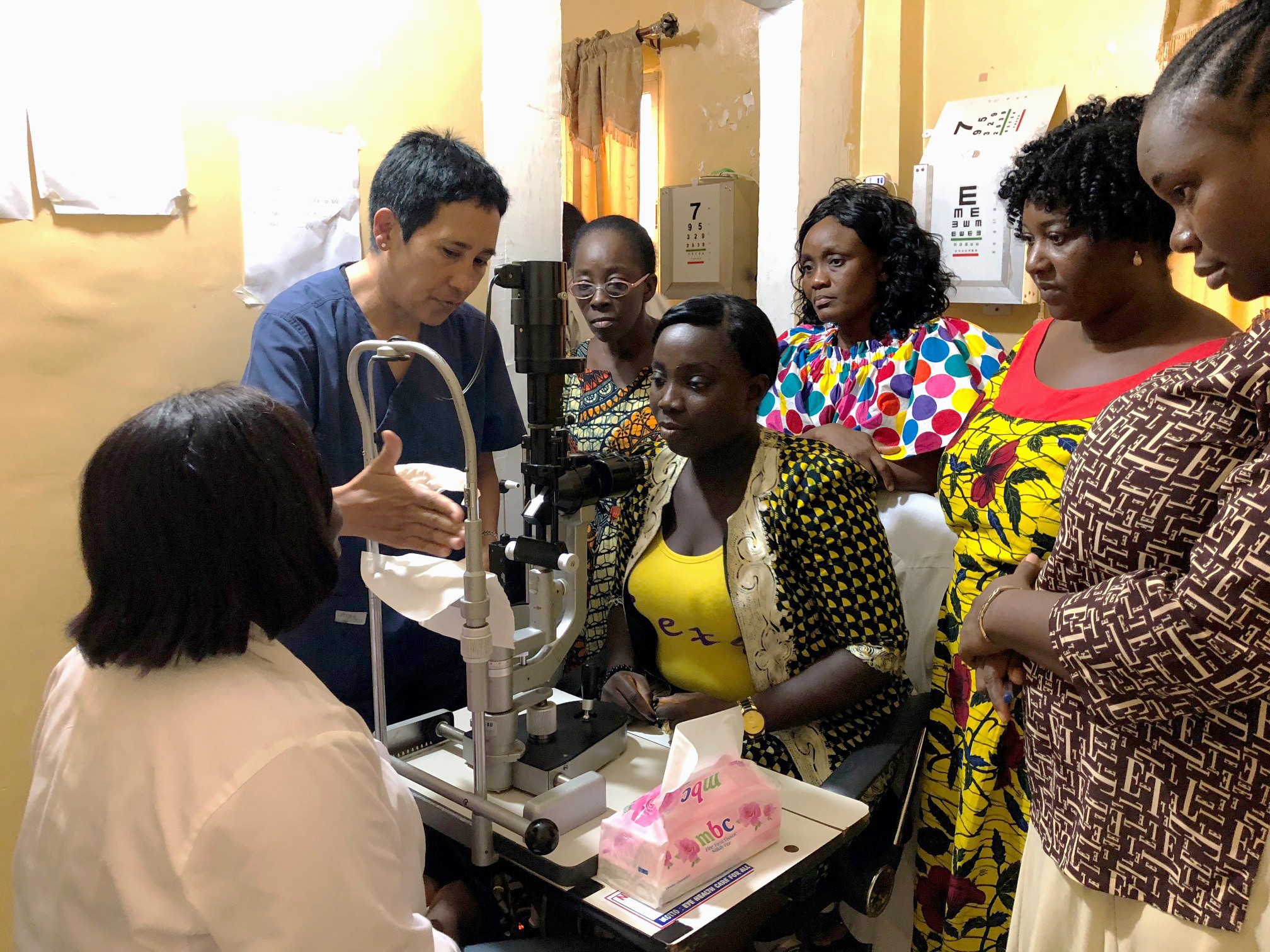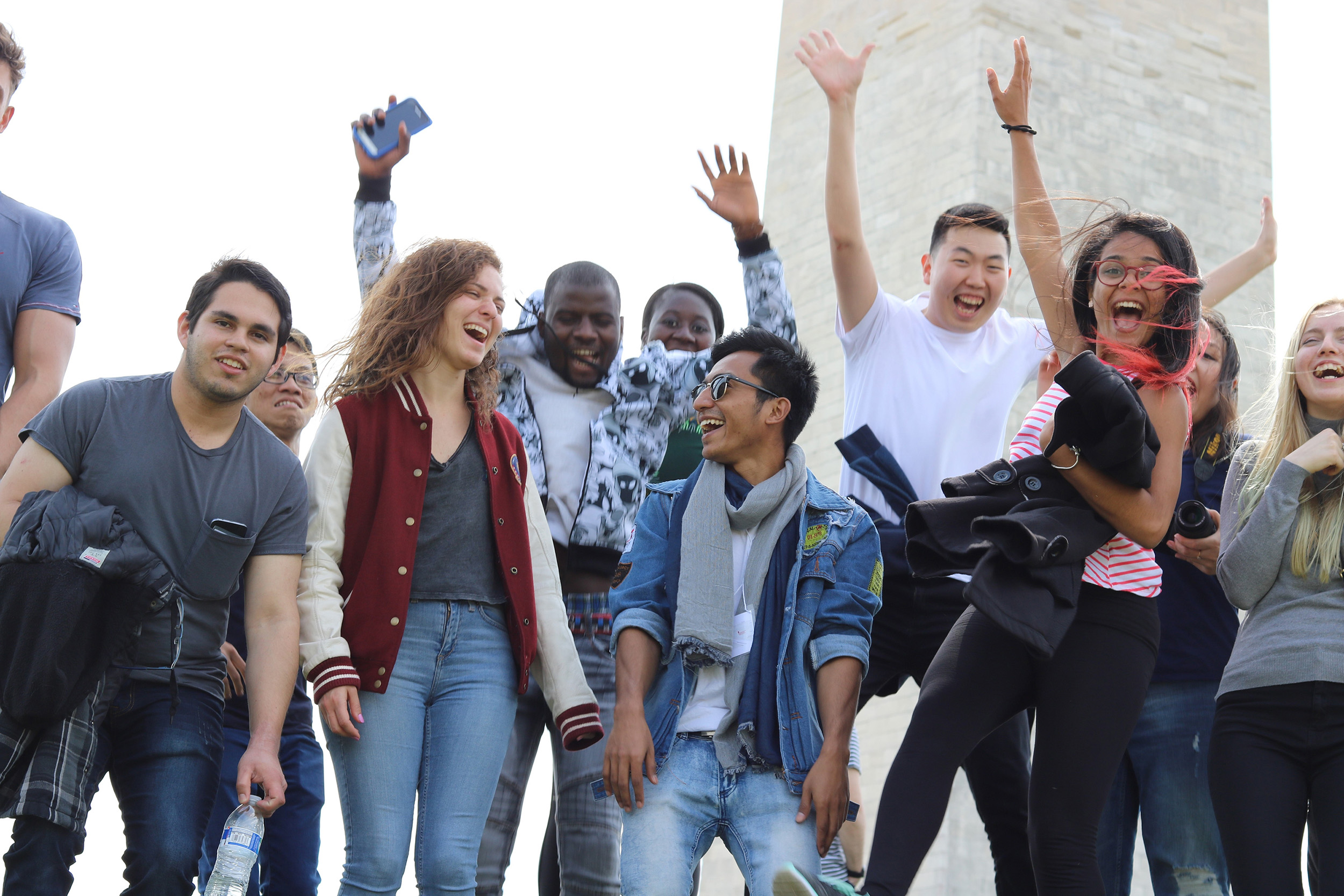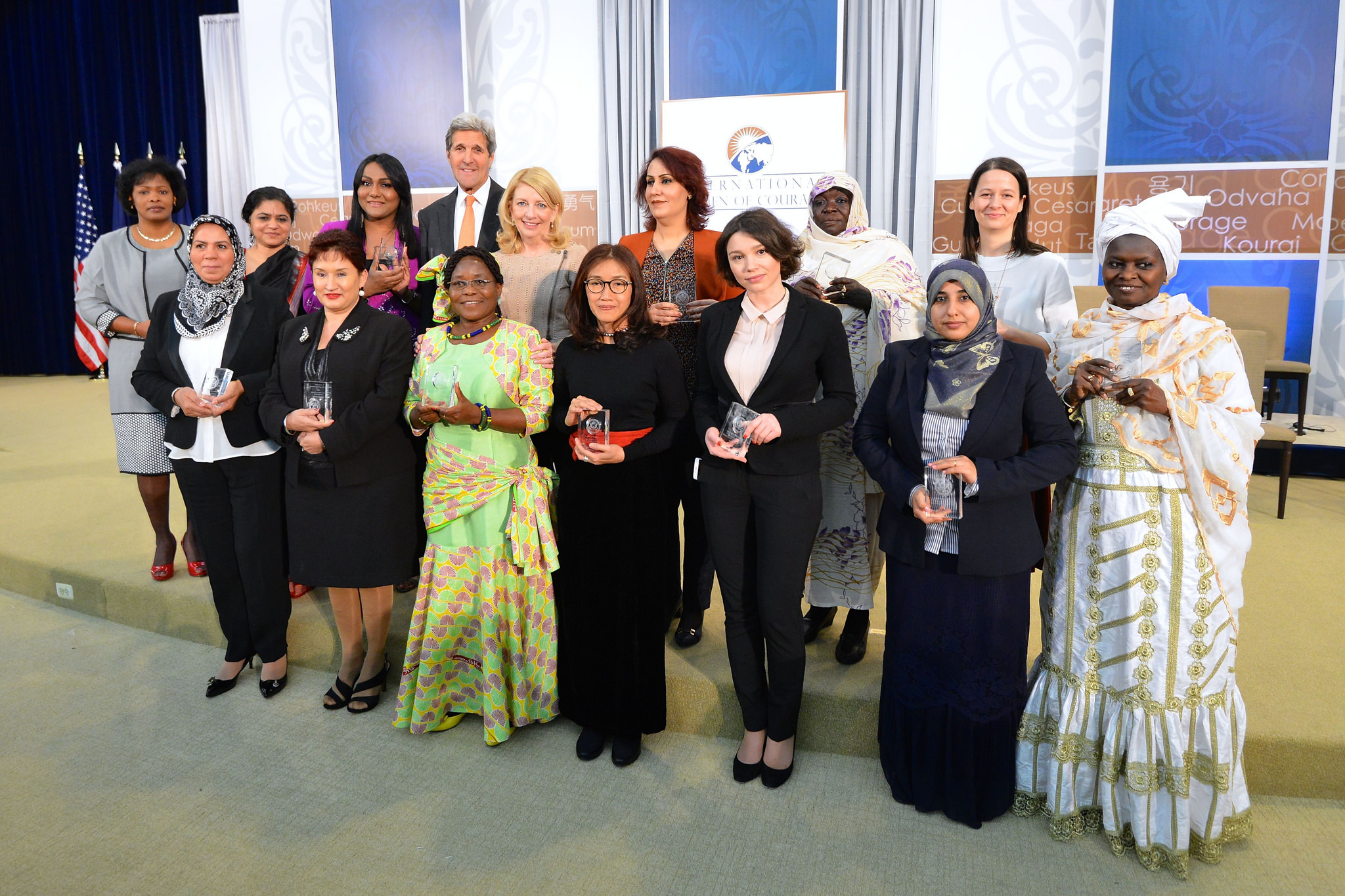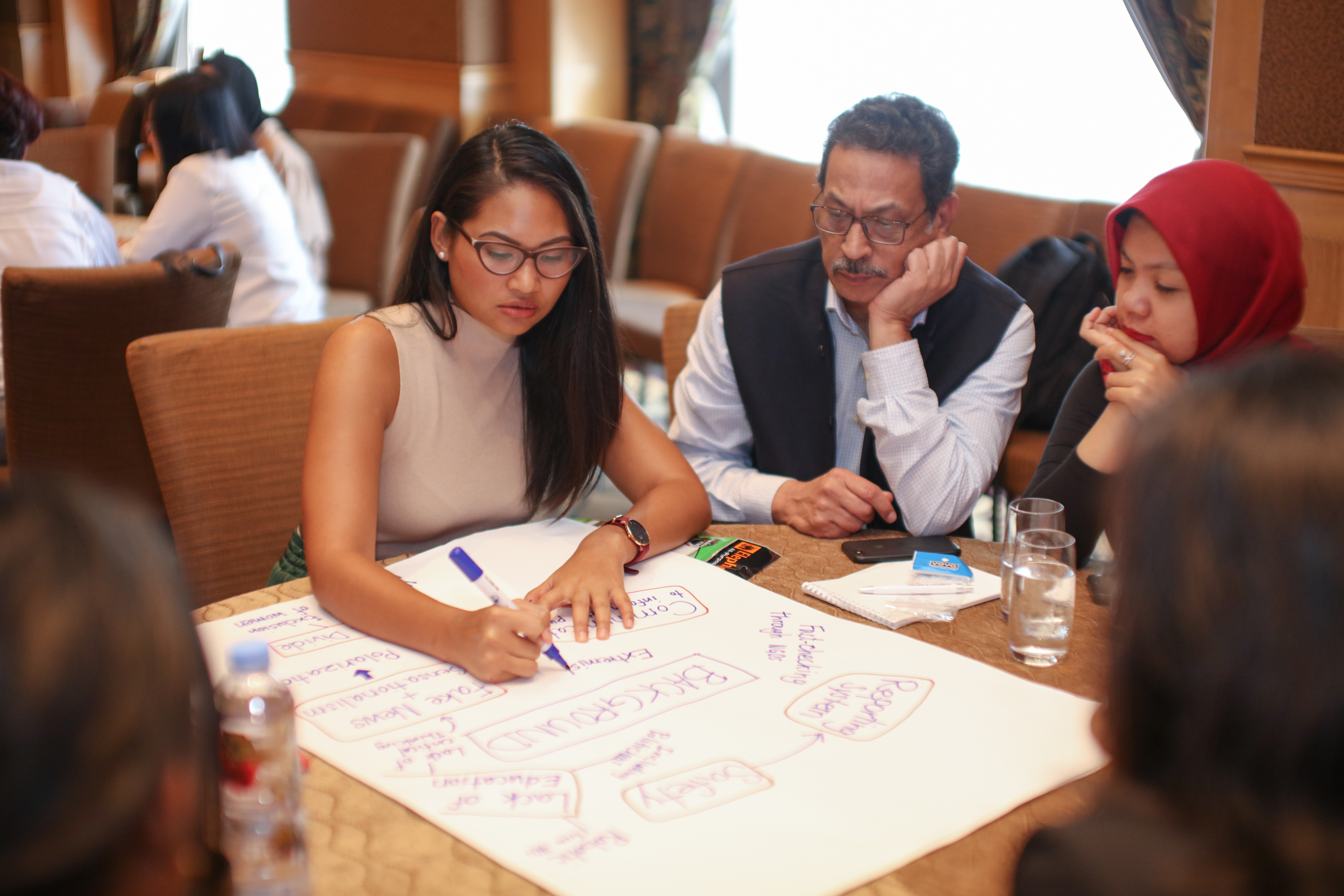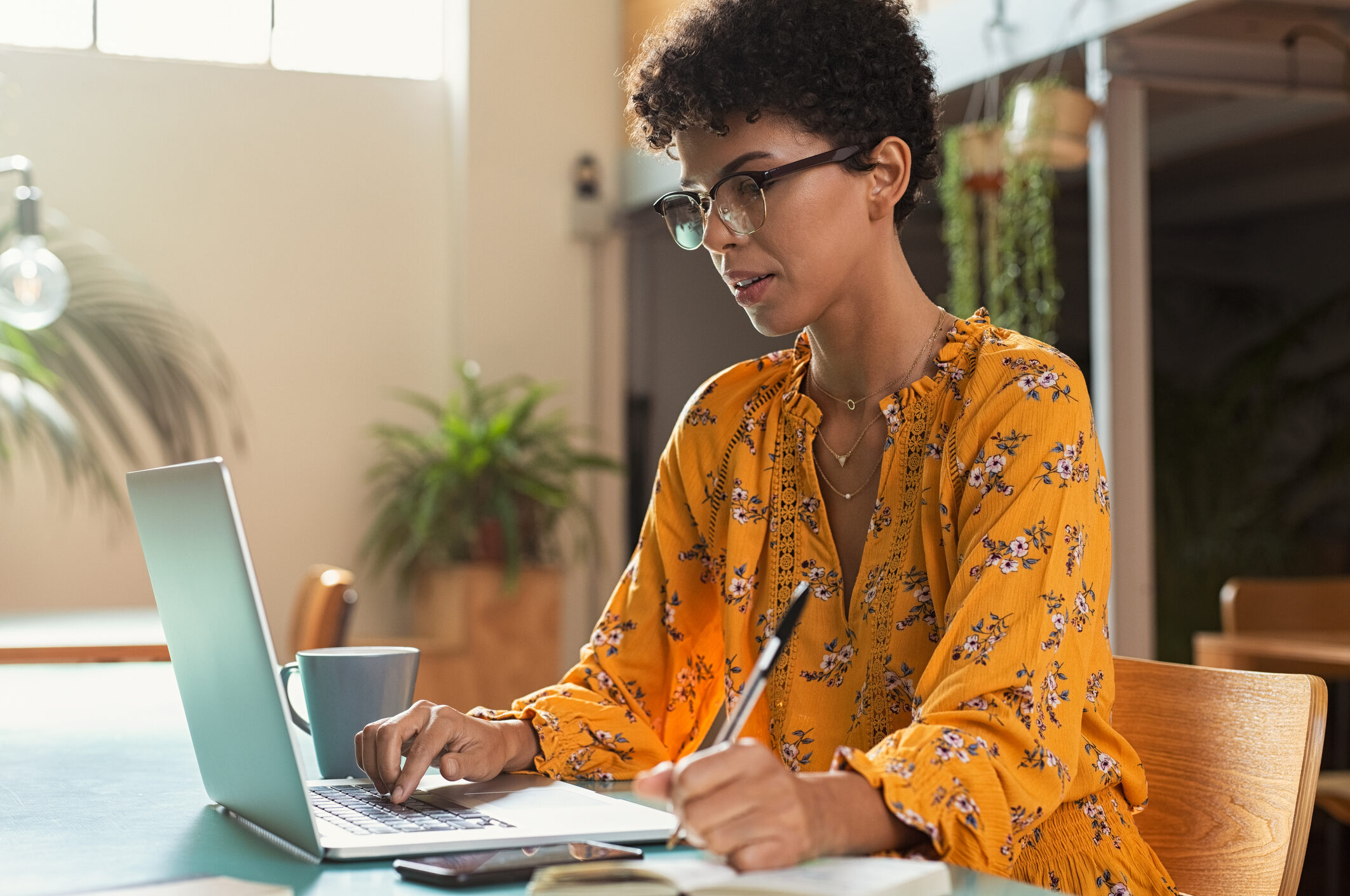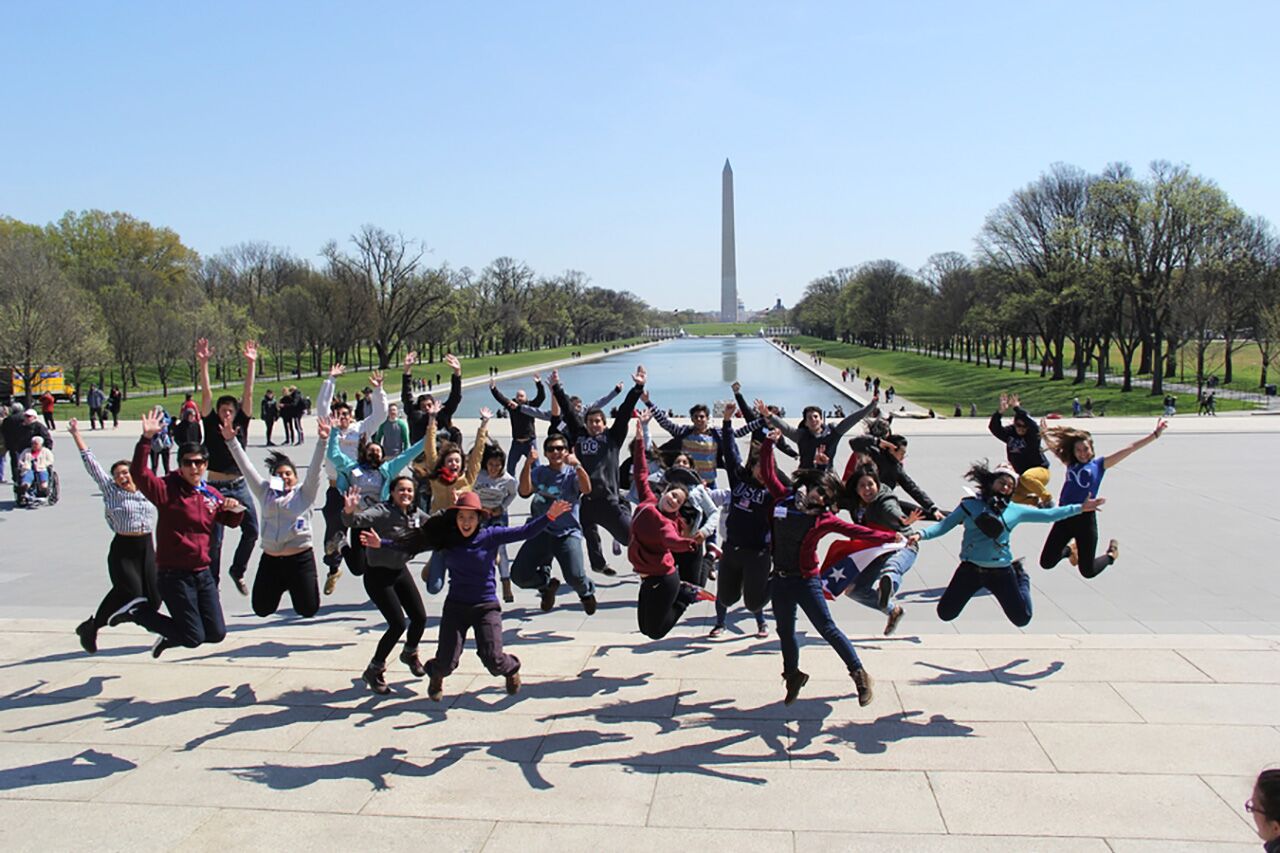-
What We Do
- WHERE WE WORK
-
About Us
 Welcome Message from Carol Jenkins
Welcome Message from Carol JenkinsFor more than 90 years, World Learning has equipped individuals and institutions to address the world’s most pressing problems. We believe that, working together with our partners, we can change this world for the better.
On my travels, I’ve had the opportunity to meet with many of those who have joined us in this mission. In Baghdad, we’ve trained more than 2,300 Iraqi youth who are already giving back at home. In London, our partners in the TAAP Initiative strongly believe that we are all responsible to practice inclusion. And in Vermont, our Experiment in International Living and School for International Training participants prove every day that they have the tools and the determination to change the world.
Please join us in our pursuit of a more peaceful and just world.
- Get Involved
Country: Venezuela
Small World; Big Hearts: Breaking Bread for Peace
When I moved to D.C. months ago, I settled into a lovely 300-square-foot studio in the Dupont Circle neighborhood, which I whimsically view as Washington’s grown-up version of Disney’s It’s A Small World — an iconic boat ride that teaches kids about global culture.
The neighborhood is steps away from Embassy Row, a tony section of Massachusetts Avenue where grand embassies stand side-by-side posh mansions. When I walk by the facades of these buildings, I imagine them as the smiling, welcoming faces in Disney’s playland and recall the high-pitched voices of children singing the ride’s theme song: “ . . . It’s a world of hopes and a world of fears / There’s so much that we share / That it’s time we’re aware / It’s a small world after all.”
I regard my tiny home as the Embassy of Maria’s Heart.
In March, I hosted a dinner for three international visitors who were in the U.S. as part of World Learning’s International Visitor Leadership Program, a professional exchange funded by the U.S. Department of State. Dinner hosting gives Americans a special opportunity to understand, exchange ideas, and forge friendships with people from around the world. It’s citizen diplomacy right in your own kitchen.
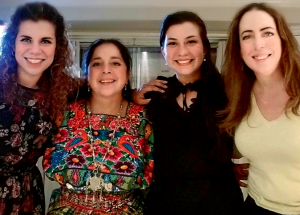
My guests were three women from Mexico, Guatemala, and Venezuela who work on corporate social responsibility, healthcare, and leadership respectively. The trio were part of a cohort of twelve women who were touring the U.S. for three weeks as part of a program called Women Leaders: Drivers of Economic and Social Change. One of the program’s objectives is showcasing women-led efforts that generate positive change in their communities.
Welcoming guests from other countries was exciting. A first-generation Cuban-American from Miami, I’d been wandering on a writer’s pilgrimage of sorts, until I landed in D.C. As a recent transplant, I was eager for all four of us to enjoy an authentic Washingtonian spread, which I procured from Glen’s Garden Market, a local shop that sources food from surrounding farmland in the Chesapeake watershed.
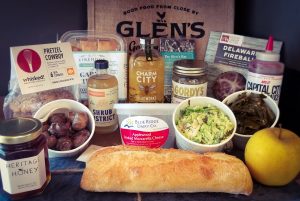
You’d think that starting a conversation with three strangers would be awkward, but no sooner was crust cracked and dipped into olive oil, did we find ourselves sharing ideas and stories without any hesitation. The warm and earthy scent of dough from fresh-baked ciabatta loaves lingered in the air, as the cadence of conversation landed upon the universal concerns of women: birth control, family planning, women’s economic security, freedom of speech, disease prevention and management, parenting, elder caregiving — you name it, we talked about it.
I’m no match for the mighty embassies up the road, but what I lack in size and officialdom I make up in warmth and openness.
I recently saw the movie A Wrinkle in Time, which references a quote by Rumi: “The wound is the place where the light enters you.” The world is full of wounds, including the collective, exhausted spirit of humanity. Breaking bread temporarily crumbles the fear that drives politics and devolves our better selves. Breaking open that crusty loaf enables the light to enter our hearts.
That evening, I learned so much about what’s really happening day-to-day in other places — the kind of heartbreaking stuff you don’t hear about in the news. The stories boosted my impression of resilient women the world over who endure unspeakable misery we can’t even begin to fathom here in the U.S. It’s comforting to know that my new friends are actively working to make their corner of the world a better place.
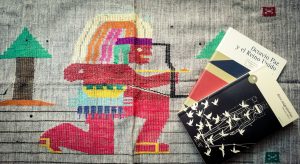
Hosting was humbling, exhilarating and deeply moving. With my Murphy bed tucked away, my living space became a miniature and covert United Nations — just a stone’s throw away from international centers of political power, including the White House.
Playing hostess was also just plain fun! I encourage my fellow Washingtonians and others beyond our nation’s capital to invite the world home for dinner. Throw open your doors to real diplomacy, experience what peace tastes like, and make sure to serve local bread! It is, after all, a small world — but our hearts are bigger.
Maria de los Angeles is an award-winning writer, teacher and spiritual entrepreneur based in Washington, D.C. She is also founder of #HeartCenteredMedia and HeartCenteredDC.com, a forthcoming digital and social platform focused on heart-centered living in the nation’s capital. Her digital dispatches can be followed on Twitter@vicequeenmaria.
Each year, World Learning’s International Visitor Leadership Program (IVLP) brings about 800 participants to the U.S. to meet with colleagues in their respective fields and learn about American culture. Almost all of them will spend at least one evening with a dinner host. (Approximately 85 communities in 43 states host international visitors for dinner through IVLP and our local partners around the country.) Many program participants report back that this is one of the highlights of their visit to the U.S.
Venezuela
Alumni Thematic International Exchange Seminars
Participant Profile
Participants are alumni of U.S. government-sponsored exchange programs and vary in age and level of expertise, but all will be engaged in the seminar topic and highly motivated to create change in their communities.
Please consult the list of U.S. government-sponsored exchange programs below.
- U.S. citizen: https://exchanges.state.gov/us
- Non-U.S. citizen: https://exchanges.state.gov/non-us
Participant Selection
Alumni TIES participants who are not U.S. citizens are nominated by the U.S. Embassies or Consulates in their countries. Please contact the U.S. Embassy or Consulate in your country to learn how you can participate in Alumni TIES. Potential Alumni TIES participants who are living in the United States can apply for specific seminars managed by World Learning. The web link to the online application will be distributed widely by the Office of Alumni Affairs of the Bureau of Educational and Cultural Affairs.
All participants for Alumni TIES seminars are selected by the U.S. Department of State.
Program Design
Alumni TIES seminars take place in six world regions and the U.S.; each seminar is three to four days for small groups of alumni. The seminars include speakers, capacity development trainings, and alumni networking activities. Through the small grants initiative, alumni have the opportunity to take action and make a positive difference in their communities.
Learn More
Watch more videos about the Alumni TIES program.
Read stories from past participants about their experiences at the seminars or with their small grant projects on the Alumni TIES blog.
For information on programs for U.S. government-sponsored exchange program alumni visit the International Exchange Alumni website.
Alumni TIES is sponsored by the U.S. Department of State with funding provided by the U.S. Government and supported in its implementation by World Learning, in partnership with the Office of Alumni Affairs of the Bureau of Educational and Cultural Affairs (ECA).
Fulbright Specialist Program
What?
Link U.S. Experts and International Institutions
A program of the U.S. Department of State, Bureau of Educational and Cultural Affairs, the Fulbright Specialist Program is a unique opportunity for U.S. academics and established professionals to engage in two- to six-week consultancies at host institutions across the globe. Host institutions, including universities, non-profits, and other organizations, develop and submit projects for approval by the U.S. Embassy or Fulbright Commission in their country in wide-ranging academic and professional fields that build capacity and promote long-lasting linkages between individuals and institutions in the U.S. and abroad.
Why?
Address Priorities and Build Institutional Capacity at Institutions Around the World
An important companion to the traditional Fulbright Scholar Program, the Fulbright Specialist Program differs by providing short-term exchange experiences that tackle discrete, sometimes rapid response, projects. The Fulbright Specialist Program encourages participation of both university faculty and highly experienced non-academics, including legal experts, business professionals, public health practitioners, scientists, IT professionals, artists, and journalists. The program is a mutually beneficial opportunity for the Specialist who may not be available to leave their position for an extended period of time and the host institution which needs an experienced partner to jointly tackle a problem or examine an issue on a short-term basis.
How?
Become a Fulbright Specialist: Apply to Join the Roster
Fulbright Specialists are a diverse group of highly experienced, well-established faculty members and professionals who represent a wide variety of academic disciplines and professions. In order to be eligible to serve as a Fulbright Specialist, candidates must have significant experience in their respective professional field and be a U.S. citizen at time of application. Eligible disciplines and professional fields supported by the Fulbright Specialist Program are listed below.
- Agriculture
- American Studies
- Anthropology
- Archeology
- Biology Education
- Business Administration
- Chemistry Education
- Communications and Journalism
- Computer Science and Information Technology
- Economics
- Education
- Engineering Education
- Environmental Science
- Law
- Library Science
- Math Education
- Peace and Conflict Resolution Studies
- Physics Education
- Political Science
- Public Administration
- Public/Global Health
- Social Work
- Sociology
- Urban Planning
Interested candidates can find more information about the Fulbright Specialist Program and apply to serve as a Specialist at fulbrightspecialist.worldlearning.org. Candidates who meet all eligibility requirements will have their full applications reviewed by a panel of their professional peers. Candidates who are approved by the peer review panels will then join the Fulbright Specialist Roster. Individuals remain on the Specialist Roster for a three-year term and are eligible to be matched with a host institution’s project abroad during that tenure.
The following costs are covered for those Fulbright Specialists who are matched to a project: international and domestic airfare, ground transportation, visa fees, lodging, meals, and incidentals. A daily honorarium is also provided.
Become a Host: Bring a Fulbright Specialist to Your Institution
The Fulbright Specialist Program allows universities, cultural centers, non-governmental organizations, and other institutions abroad to host a leading U.S. academic or professional to work on diverse, short-term collaborative projects where the Specialist conducts activities which may include, but are not limited to:
- Delivering a seminar or workshop
- Consulting on faculty or workforce development
- Developing academic or training curricula and materials
- Lecturing at the graduate or undergraduate level
- Conducting needs assessments or evaluations for a program or institution
Institutions interested in hosting a Fulbright Specialist should contact their local Fulbright Commission or U.S. Embassy for country-specific requirements and deadlines.
Contact information for all participating countries is available on the fulbrightspecialist.worldlearning.org website.
For more information or questions about the Fulbright Specialist Program, please email [email protected].
The Fulbright Specialist Program is a program of the U.S. Department of State with funding provided by the U.S. government and administered by World Learning.
Global Undergraduate Exchange Program
For highlights from the Global UGRAD Program, visit our newsletter, the Global Gazette.
Global UGRAD
International Visitor Leadership Program
End of Year Report
Chosen by U.S. embassies worldwide to participate, distinguished professionals include:
- parliamentarians
- government officials
- entrepreneurs
- NGO leaders
- journalists
- academics
- arts administrators
- mid-career professionals
Programs focus on policy issues in areas such as:
- government
- international security
- foreign policy
- entrepreneurship
- economics and trade
- media
- women’s leadership
- education
- public health
- arts
- agriculture
- disability rights and inclusion
World Learning staff members design national itineraries, arrange logistics, set up meetings in Washington, DC, and coordinate the collaboration of U.S. Department of State program officers, interpreters and International Visitor Liaisons, and more than 85 community-based member organizations from the Global Ties U.S. Network who arrange local programs nationwide.
Participants
Most participants are mid-career professionals and emerging leaders, and for many, this is their first visit to the U.S. Groups are of varying sizes, from single visitors to groups of 25 or more. World Learning program staff work closely with their State Department counterparts to design a program customized to the project objectives and the visitors’ interests.
Participant Selection
IVLP candidates are selected solely by U.S. embassy personnel in each country. There is no application form. World Learning is a private sector partner of the U.S. Department of State; our role is limited to designing programs for participants once they arrive in the U.S. For further information regarding the program, please consult the U.S. Department of State’s website.
Program Design
A typical project includes up to a week of meetings in Washington, DC, to provide an orientation and overview of the theme and to introduce visitors to federal officials and agencies, national organizations, academics and think tanks, nonprofits and NGOs, and professionals in their specific field of interest. All projects include a briefing on the US federal system of government. Meetings may include panel discussions, site visits, workshops, individual interlocutors, job shadowing, or service opportunities. Visitors typically travel to an additional three or four cities in geographically diverse regions of the country; the itinerary may include a state capital and a small town to provide first-hand exposure to the great diversity that exists in the U.S. Also included in the program design are hospitality dinners, school visits, community service activities, and cultural events such as rodeos, state fairs, festivals, visits to national parks, or events that highlight some unique aspect of the region visited.
Participant Experience
“My recent experience in the IVLP program is so far the deepest ever for me to see and understand the full picture of what America as a country is like. I strongly believe this program will have a very long-term impact on my views about America and the world and to some extent it has already helped me to understand many long-time questions.” – Journalist from China
The International Visitor Leadership Program is sponsored by the U.S. Department of State with funding provided by the U.S. Government and administered by World Learning.
Leaders Lead On-Demand Program
Examples of past leaders Lead On-Demand Projects:
- Vietnam Legal Aid
- Refugee Integration and Resettlement in Central and Eastern Europe
- Sports Leadership Program for Colombia
- Mongolia Disability Rights Legislation and Implementation
- Promoting Open Educational Resources: Middle East and North Africa
- Tourism and Development in Serbia and Kosovo
- Religious Freedom and Interfaith Dialogue for Myanmar, India, Indonesia, Malaysia, Sri Lanka, and Thailand
- Emerging Leaders Exchange for Northern Ireland and the Republic of Ireland
- Environmental Advocacy for Mongolia
- Getting Connected Program for the South Pacific
- Civic Engagement Program for Moldova
- Disinformation and Fact Checking in Kenya
The Leaders Lead On-Demand is sponsored by the U.S. Department of State with funding provided by the U.S. Government and administered by World Learning.
Online Professional English Network Program (OPEN Program)
Youth Ambassadors Program
In-Person Youth Ambassadors Programs:
Three-week, Youth Ambassadors programs commence in various locations across the United States, including San Francisco, CA; Washington, DC; or in Brattleboro, VT. Participants then travel in smaller cohorts to host communities across the country. All inbound programs include a segment in Washington, DC.
The U.S. Youth Ambassadors exchanges follow a similar program cycle, beginning with a U.S.-based pre-departure orientation, followed by international travel to the exchange country. Three-week, single, and multi-country exchanges take place between June – August; exact dates will vary by exchange country.
The Adult Mentor Role:
The Adult Mentor, or Adult Educator, role is an important part of the Youth Ambassadors Program. These adult program participants support the development of group cohesion and community among program participants; assist youth participants in cultural exploration; engage youth participants in learning and help connect their experiences to their Community-Based Service Initiatives; and continue mentorship development following the virtual or in-person exchange by supporting youth participant project implementation. Youth Ambassadors Adult Educators will:
- Facilitate participants’ progress on program activities. This may include supporting Youth Ambassadors Program staff with check-ins on individual participants’ progress; and providing insights, guidance, and encouragement on participants’ assignments and discussions.
- Build the capacity of participants. A key role of the adult educators is to build the capacity of youth participants by enabling them to solve issues or problems as they arise. Youth Ambassadors Program staff do not expect adult educators to solve problems, but rather to empower students to solve their issues/problems themselves.
- Serve as a resource. Adult Educators will serve as a resource for the student teams by sharing their technical expertise, organizational experience, professional networks, and life experience. In other words, if youth participants have questions and are in need of resources to get to the next level, adult educators should point them in the right direction, based on their experience and connections. Following the program, Adult Educators will support youth participants as they implement their community projects. Adult Educators will be available for questions and guidance as participants need.
- Act as a cultural bridge. Adult Educators serve as a “cultural bridge” if youth participants have difficulty understanding each other or any part of the program.
Connect with Youth Ambassadors
- Tumblr Link: http://wlyap.tumblr.com/
- Youth Team Instagram: https://www.instagram.com/youthambassadorsexchange/
- Youth Team Facebook: https://www.facebook.com/YouthAmbassadorsExchange
Contact Us
Questions? Contact our Admissions Office at [email protected] or at 1-877-591-9626 inside the U.S. or at 1-802-258-3485 outside the U.S.




